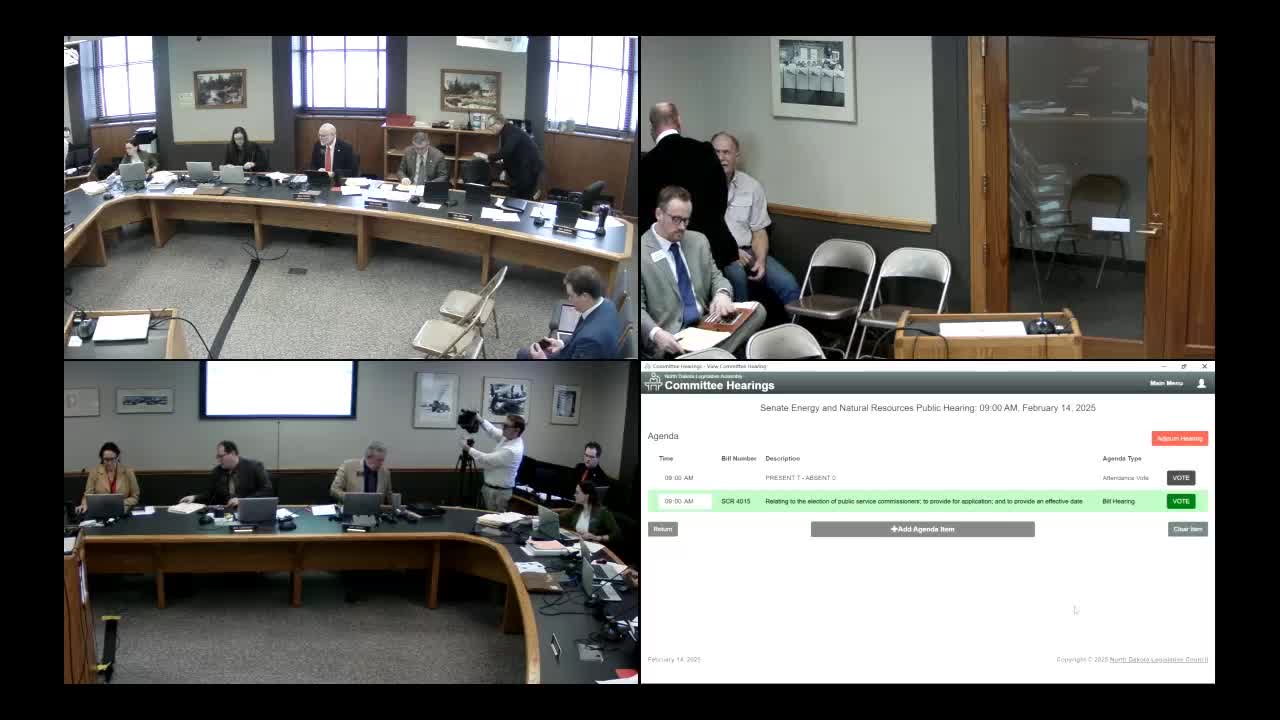Committee adopts amendment on topsoil preservation language but rejects bill; Senate Bill 2313 receives do-not-pass recommendation
Get AI-powered insights, summaries, and transcripts
Subscribe
Summary
The Senate Energy and Natural Resources Committee approved an amendment to SB2313 that would require “suitable plant growth material” disturbed by well sites and related oil-and-gas facilities to be documented and preserved, but after debate the committee voted down a do-pass motion on the amended bill and then approved a do-not-pass motion.
The Senate Energy and Natural Resources Committee considered Senate Bill 2313, a measure addressing reclamation language for oil- and gas-related sites, and approved an amendment changing how disturbed plant growth material is handled in statute. The committee later voted not to advance the bill.
Mark Bohr, assistant director of the Department of Mineral Resources (Oil and Gas Division), told the committee the department generally supports the amendment’s intent but recommended small wording changes. Bohr said much of the amendment repeats current practice: contractors and companies already document and preserve available topsoil, and reclamation work is commonly performed to industry standards. “We reclaim or releasing over 200 sites a year,” Bohr said, and the department receives comparatively few complaints: “I would estimate it's 5 or less per year.” He described typical topsoil availability in producing areas as “generally less than 12 inches,” though some landowners have requested up to 16 inches removed.
The amendment the committee adopted replaced longer language with a concise requirement that “suitable plant growth material disturbed for construction of well sites, treating plants, saltwater handling facilities, and access roads must be documented and preserved.” The Department of Mineral Resources requested one technical change during testimony (changing “will” to “must” and striking a redundant sentence referencing rulemaking authority); the committee adopted amended language after debate and a roll-call vote that passed 6–1.
Committee members questioned whether the change was necessary because current practice and existing statute already address reclamation. Senators also raised concerns about landowner rights and negotiation of site-specific terms. One senator warned that adopting the amendment could limit what a landowner can negotiate with an operator on an individual site. Department witnesses described the commission’s existing bond-release process: field staff inspect sites, require removal of contamination when found, require replacement topsoil and vegetation establishment, and withhold bond release until reclamation is satisfactory.
After the amendment was adopted, a motion to give SB2313 a due-pass recommendation as amended was offered and failed on a roll-call vote, 3 ayes and 4 nays. The committee then voted 4–3 in favor of a do-not-pass recommendation for SB2313; Chairman Patton moved the do-not-pass motion and Senator Inghitt (as recorded) seconded. Senator Castle agreed to carry the bill in the event of floor consideration. The transcript records the committee action as a do-not-pass recommendation for SB2313.
Provenance: discussion of SB2313 began at the transcript block where Chairman Patton introduced bills in inventory (around transcript time 34:36) and the topic concluded when the committee recorded the do-not-pass vote (around transcript time 50:32).
